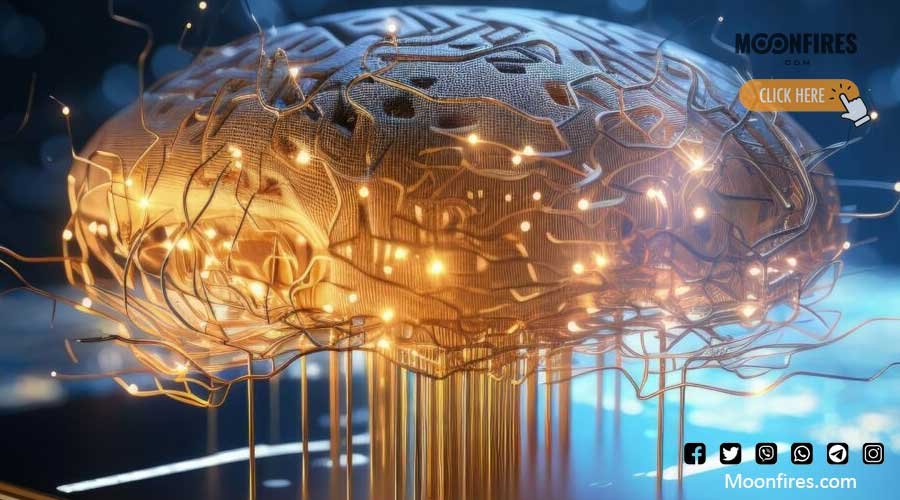In the realm of technology, two groundbreaking innovations—Quantum Computing and Artificial Intelligence (AI)—are reshaping the future. These two fields, individually transformative, have the potential to revolutionize industries, economies, and human life when combined. But how do they intersect, and what does this union mean for humanity? Let’s explore the history, current advancements, and future implications of this technological superpower in the making.
The Evolution of Quantum Computing
What is Quantum Computing?
Quantum computing is a type of computation that leverages the principles of quantum mechanics, such as superposition, entanglement, and quantum interference, to process information. Unlike classical computers, which use bits as the smallest unit of data (0 or 1), quantum computers use qubits that can represent 0, 1, or both simultaneously. This capability allows quantum computers to perform complex calculations at speeds unattainable by classical systems.
A Brief History
- 1980s: The concept of quantum computing emerged with physicist Richard Feynman proposing the idea of simulating quantum systems using quantum mechanics.
- 1994: Peter Shor developed an algorithm for quantum computers to factorize large numbers exponentially faster than classical computers, showcasing the disruptive potential of quantum computing.
- 2001: IBM successfully demonstrated quantum computation by factoring 15 into 3 and 5 using a 7-qubit quantum computer.
- 2019: Google’s Sycamore processor achieved quantum supremacy, solving a problem in 200 seconds that would take the fastest classical supercomputer 10,000 years.
Quantum computing is no longer a theoretical concept but an evolving technology poised to solve problems beyond the reach of traditional computing.
The Rise of Artificial Intelligence
What is Artificial Intelligence?
AI refers to the simulation of human intelligence by machines, enabling them to perform tasks such as learning, reasoning, problem-solving, and decision-making. AI systems use data, algorithms, and computational power to emulate cognitive functions.
A Brief History
- 1950s: The term “Artificial Intelligence” was coined by John McCarthy, and the first AI programs, such as the Logic Theorist, were developed.
- 1997: IBM’s Deep Blue defeated world chess champion Garry Kasparov, marking a significant milestone.
- 2012: The advent of deep learning revolutionized AI, with neural networks demonstrating human-like capabilities in image and speech recognition.
- 2020s: AI applications now span industries, from healthcare and finance to autonomous vehicles and natural language processing, exemplified by systems like OpenAI’s GPT and Google’s DeepMind.
AI has become a cornerstone of technological innovation, driving automation, efficiency, and creativity across sectors.
The Intersection of Quantum Computing and AI
Why Combine Quantum Computing and AI?
AI, despite its rapid advancements, faces limitations in processing vast datasets and solving highly complex problems. Quantum computing, with its unparalleled computational power, can overcome these limitations. Here’s how:
- Accelerating Machine Learning (ML): Quantum computers can enhance the training of ML models by processing large datasets more efficiently, reducing time from days to minutes.
- Optimization Problems: AI often struggles with optimization tasks, such as route planning or supply chain management. Quantum algorithms can find optimal solutions exponentially faster.
- Improved Pattern Recognition: Quantum computing can improve AI’s ability to recognize patterns in data, aiding applications like fraud detection, genomic analysis, and climate modeling.
- Enhanced Natural Language Processing (NLP): NLP tasks, such as language translation and sentiment analysis, can be revolutionized by quantum-enhanced AI, offering faster and more accurate results.
Applications of Quantum-Enhanced AI
1. Healthcare
Quantum-enhanced AI can revolutionize drug discovery, personalized medicine, and diagnostics. By analyzing complex molecular structures and patient data, it can accelerate the development of treatments for diseases like cancer and Alzheimer’s.
2. Finance
Quantum computing can optimize financial portfolios, detect fraud, and enhance risk management. When combined with AI, it can analyze market trends and make predictive decisions with unprecedented accuracy.
3. Climate Science
Quantum-enhanced AI can simulate climate models to predict environmental changes, aiding in disaster management and sustainability planning.
4. Cybersecurity
Quantum computing can break traditional encryption methods, but it also offers quantum cryptography, which is virtually unhackable. AI can enhance these systems by detecting and responding to threats in real time.
5. Transportation
From optimizing traffic flow to enabling autonomous vehicles, quantum-enhanced AI can make transportation systems more efficient and safer.
Challenges and Ethical Considerations
1. Technological Barriers
- Hardware Limitations: Quantum computers are still in their infancy, with issues like qubit stability (decoherence) and error rates.
- Scalability: Building large-scale quantum computers is a significant engineering challenge.
2. Ethical Concerns
- Data Privacy: Quantum-enhanced AI could process personal data at unprecedented speeds, raising concerns about misuse.
- Bias and Fairness: AI systems can inherit biases from training data, and quantum computing might amplify these issues.
- Weaponization: The combined power of quantum computing and AI could be exploited for malicious purposes, such as creating advanced cyberweapons.
3. Accessibility and Inequality
The development and deployment of quantum-enhanced AI require immense resources, potentially widening the gap between tech giants and smaller players.
Global Efforts and Collaborations
Leading Players
- IBM, Google, and Microsoft: Pioneering research in quantum computing and its integration with AI.
- China: Investing heavily in quantum research, aiming to lead the quantum race.
- European Union: Launching initiatives like the Quantum Flagship program to advance quantum technologies.
Collaborative Efforts
Global collaborations, such as the Quantum AI Alliance, are fostering partnerships between academia, industry, and governments to accelerate innovation.
Future Implications
A Paradigm Shift in Computing
The fusion of quantum computing and AI represents a paradigm shift, enabling solutions to problems previously deemed unsolvable. Industries like healthcare, finance, and logistics will experience transformative growth.
Shaping Global Power Dynamics
Nations leading in quantum and AI technologies will wield significant geopolitical influence, akin to the nuclear and space races of the 20th century.
Redefining Humanity’s Potential
From understanding the origins of the universe to combating pandemics, quantum-enhanced AI could redefine what humanity can achieve.
Conclusion
Quantum computing and AI are not just technological advancements; they are superpowers in the making. Their convergence has the potential to solve humanity’s greatest challenges, from curing diseases to addressing climate change. However, this immense power comes with significant responsibilities. As we stand on the brink of this new era, the need for ethical frameworks, global cooperation, and equitable access has never been greater.
The journey of quantum computing and AI has just begun, but its trajectory promises to reshape the future in ways we can only begin to imagine. Will this superpower propel humanity to new heights or create unprecedented challenges? The answer lies in how we choose to wield this transformative force.














